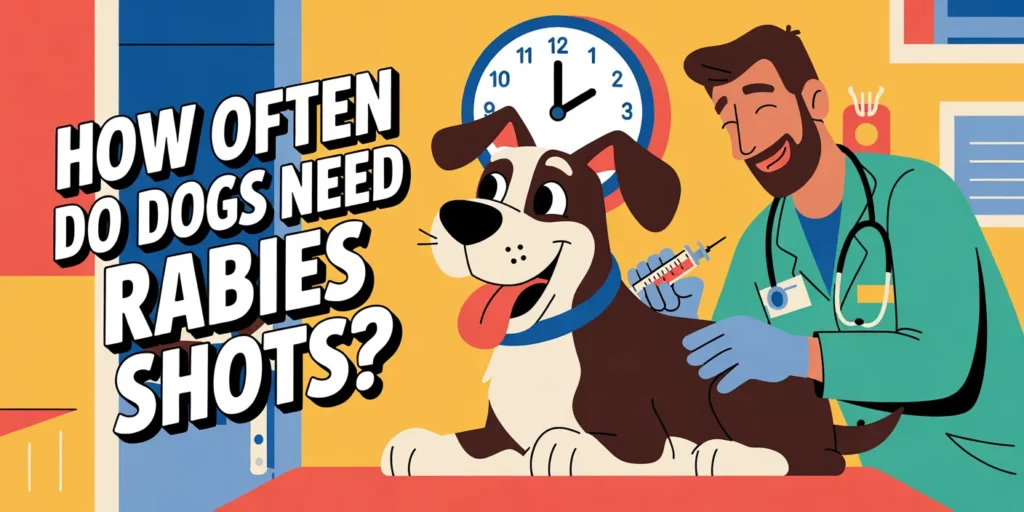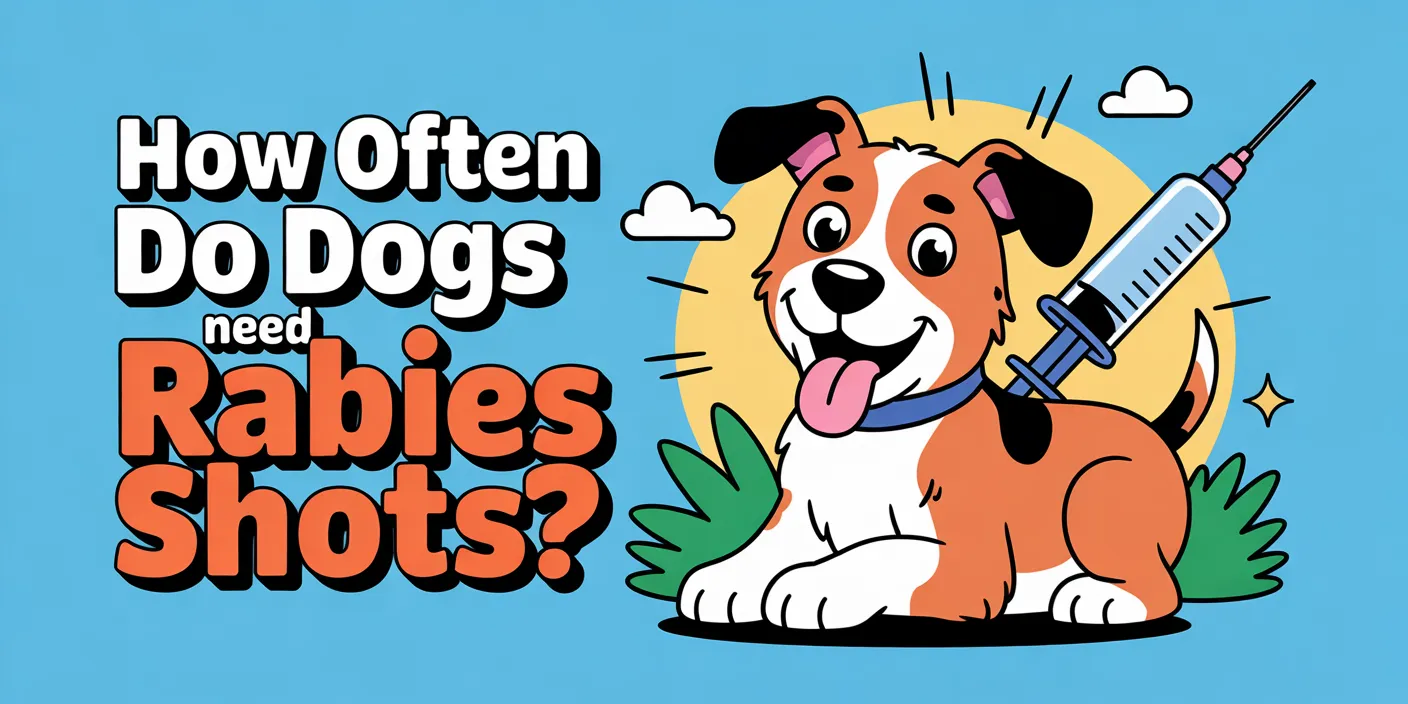Rabies shots are a vital part of keeping your dog safe 🐾 and healthy. Rabies is a deadly disease, but the good news is that rabies shots can protect your dog from this fatal illness. In this article, we will explore how often your dog needs these important shots and why they are so crucial for your pet’s well-being.
Understanding Rabies Shots and Their Importance 🐾
Rabies shots are one of the most important vaccines your dog can receive! 🐶 Rabies is a viral disease that attacks the brain and is nearly always fatal if left untreated. It can spread to humans through bites or saliva from infected animals.
Vaccination helps protect your dog from this terrible disease and also prevents it from spreading in the community. Did you know that in many places, rabies shots are required by law? 🌍💉
How Often Do Dogs Need Rabies Shots? 📅

The frequency of rabies shots varies depending on your dog’s age, the type of vaccine, and where you live. Let’s break it down:
The Initial Shot and Boosters 🐕💉
When your puppy is around 12 to 16 weeks old, it’s time for that first rabies shot. 🎉 After this, most dogs will need a booster shot one year later.
- One-Year Vaccine: Some vaccines only protect for one year, requiring an annual booster.
- Three-Year Vaccine: Other vaccines can last up to three years, making it more convenient for both you and your dog! 🏅
Factors That Influence the Frequency of Rabies Shots 🗺️
- Local Laws: In some regions, local laws dictate how often your dog should get rabies shots. Make sure to follow the guidelines in your area to avoid penalties.
- Health and Exposure: If your dog has a weaker immune system or frequently interacts with wildlife, they may need more frequent vaccinations. Always check with your vet if you’re unsure! 🐾
Risks of Missing Rabies Shots 🚫
It’s essential to stay on top of your dog’s vaccination schedule. Missing rabies shots can put your pet and others at risk. 🚷 Rabies is a fatal disease, and preventing it through regular vaccinations is much better than dealing with the consequences.
By keeping your dog’s vaccinations up to date, you also help protect your community from the spread of this deadly disease. Rabies shots are not just for your pet’s health—they’re for everyone’s safety. 🌍🛡️
What Happens if Your Dog Misses a Rabies Shot? 😱
If your dog misses a rabies shot, don’t panic! 😯 It’s important to consult your veterinarian as soon as possible. Missing a vaccination could result in your dog losing its immunity.
Key things to remember if your dog misses a shot:
- No Grace Period: Even a small delay can make your dog vulnerable to rabies.
- Restarting the Series: In some cases, your vet may need to restart the vaccination process. Always consult a professional! 🐾
Signs Your Dog Is Due for a Rabies Shot 🕒
When’s the last time your dog had a rabies shot? Don’t worry if you’re not sure—here’s how to stay on track:
- Track the Date: Keep a record of your dog’s rabies shots to know when the next one is due.
- Ask Your Vet: During annual check-ups, ask your vet if your dog is due for a rabies shot.
- Legal Considerations: If you’re traveling with your dog or moving to a new area, make sure your pet’s vaccinations are up to date to avoid complications. 🌍✈️
Keeping Your Dog Safe with Regular Rabies Shots 🐶💉
To keep your dog safe from the deadly effects of rabies, it’s essential to follow a regular vaccination schedule. Rabies shots are critical not only for your dog’s health but for the safety of others. Always stay informed about your dog’s vaccination needs, and consult your vet if you have any questions or concerns. Protect your dog and help protect the community! 🐾❤️

